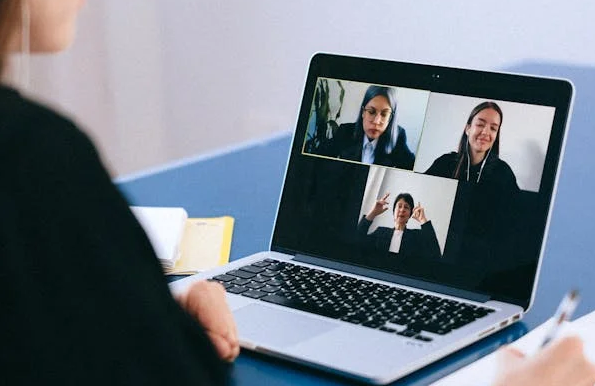Mastering Job Interview Success: Tips and Tricks to Ace Every Stage
Ever feel like job interviews are just an elaborate game of 20 Questions, except the stakes are your livelihood? I’ve been there too. From virtual chats where my cat decided to join as “co-interviewer” to final rounds that felt more like mental chess, I’ve learned a thing or two about how to navigate these career crucibles. Let’s talk strategy, humor, and some hard-earned truths to help you ace your next interview.
Preparing for Your Interview: Laying the Groundwork
Here’s a little secret: winging-it rarely works. My first big interview taught me that the hard way when I confidently declared I was a "team player"—then completely blanked on an example to prove it. Painful, right? Let’s not let that happen to you.
Feeling unprepared is like showing up to a potluck empty-handed. You feel awkward, out of place, and like everyone’s silently judging you. But just Googling the company the night before doesn’t cut it. What if they ask you something like, “How does our mission align with your values?” (Translation: Do you even know what we do?)
What Services Do Reverse Recruiters Offer? (No.4 is a gem!)
Let’s get specific about what reverse recruiters bring to the table. With reverse recruiting, you’re getting a full suite of services tailored to make you shine. Here’s a taste:
Spend an hour digging deeper. Look up company news, mission statements, and team bios on LinkedIn. Also, prepare for those classic interview questions like “Tell me about yourself.” Use frameworks like STAR (Situation, Task, Action, Result) to structure your answers. Oh, and if it’s a virtual interview, test your tech ahead of time. Tips for Zoom interviews: check your lighting, background, and camera angle—no one wants to see your ceiling fan instead of your face.

Nailing the First Impression: The First Interview
You know what they say about first impressions—they stick. When I went to my first in-person interview, I wore the world’s squeakiest shoes. Every step sounded like a rubber duck quacking. Needless to say, I stood out, but not in the way I want
Walking into a room (or logging onto Zoom) and realizing you’ve got no idea what to say or do can throw anyone off their game But here's the thing: if you come across as underprepared or overanxious, it can overshadow your actual qualifications. You don’t want to be remembered as the “clammy handshake candidate,” do you?
Dress appropriately for the role (and test your outfit for squeaks!). Research the company’s vibe—business formal for a corporate setting or smart casual for a startup. For first-timers, confidence is key. Don’t dwell on your lack of experience; instead, highlight transferable skills and your eagerness to learn.
Let’s break it down with some pros and cons of each type of recruiter to help you decide
which is best for you:
Pro tip: When asked, “Do you have any questions for us?” never say
no! Ask about team culture or how success is measured in the role.
Mastering Question Techniques: From Behavioral to Strategic
You know what they say about first impressions—they stick. When I went to my first in-person interview, I wore the world’s squeakiest shoes. Every step sounded like a rubber duck quacking. Needless to say, I stood out, but not in the way I want Walking into a room (or logging onto Zoom) and realizing you’ve got no idea what to say or do can throw anyone off their game
But here's the thing: if you come across as underprepared or overanxious, it can overshadow your actual qualifications. You don’t want to be remembered as the “clammy handshake candidate,” do you?
Dress appropriately for the role (and test your outfit for squeaks!). Research the company’s vibe—business formal for a corporate setting or smart casual for a startup. For first-timers, confidence is key. Don’t dwell on your lack of experience; instead, highlight transferable skills and your eagerness to learn.
Pro tip: When asked, “Do you have any questions for us?” never say no! Ask about team culture or how success is measured in the role.
Mastering Question Techniques: From Behavioral to Strategic
The dreaded behavioral questions. They can feel like a trap, but they’re actually a chance to shine. I once flubbed the “What’s your biggest weakness?” question by joking, “Chocolate cake.” Crickets… Never again!
It’s easy to ramble or freeze up when asked to recount past challenges or mistakes. But generic answers like “I work too hard” (cue eye-roll) won’t cut it. You need to stand out while staying authentic.
Prep for the most asked interview questions by using STAR or the lesser-known CARE (Context, Action, Result, Evolution) method. For instance, “Tell me about a time you solved a problem at work” can become a concise, engaging story with these tools. If you’re stumped, just take a breath—it’s okay to ask for a moment to collect your thoughts.
Pro tip: Always tie your answer back to the role. For example, if discussing teamwork, explain how the experience makes you a better fit for their collaborative environment.
Excelling in Specialized Scenarios
Final interviews and management roles can feel like climbing Everest without a guide. I’ve been in those meetings where the panel seems to channel Simon Cowell-level scrutiny Feeling like you’re in the hot seat, with every word scrutinized, can rattle even the best-prepared candidate.
But crumbling under pressure isn’t an option. You’re here to show leadership, confidence, and poise—while secretly wishing for a break to gulp some water. For final job interview tips, focus on addressing any lingering doubts. Reaffirm your enthusiasm for the role and share insights about what you’ll bring to the team. If interviewing for a management position, emphasize your ability to lead, resolve conflicts, and drive results. Have anecdotes ready that showcase these skills.

AI visualization representing the future of technology
The Aftermath: Following Up for Success
Think of the post-interview phase as your encore performance. I’ve sent my share of generic “Thank you for your time” emails, and let me tell you—they don’t exactly wow anyone. Skipping the follow-up or sending something bland can make you forgettable.
But going overboard with a four-paragraph essay might seem desperate. Finding the sweet spot is tricky. Send a concise, personalized thank-you note within 24 hours. Mention specific topics discussed during the interview, like a project you found exciting or a challenge you’re eager to tackle. Keep it professional but warm. Pro tip: If you don’t hear back in a week or two, it’s okay to send a polite follow-up.
Conclusion: Take Control of Your Interview Success
Job interviews don’t have to feel like walking a tightrope. With the right preparation, a sprinkle of humor, and a few solid frameworks in your back pocket, you’ll leave a lasting impression. Need more personalized help with interview prep or navigating tricky career transitions? Reach out to us! Let’s work together on your job search so you can focus on making your next interview your best one yet.
